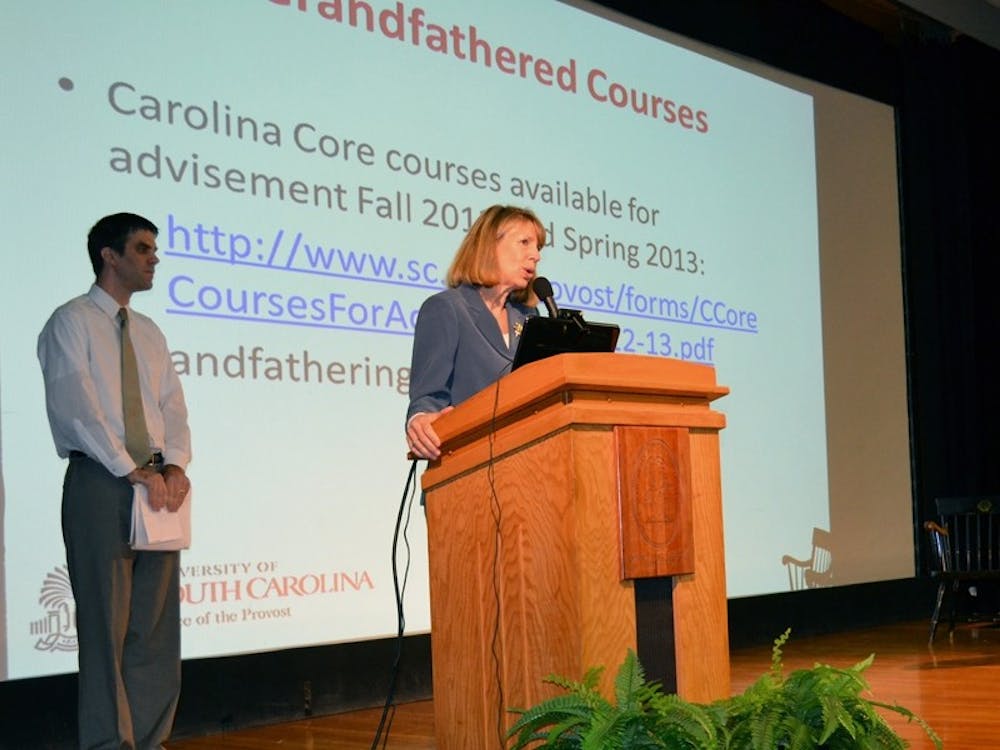Committee members explain requirements at Russell House forum
Carolina Core, the first update to USC’s general education requirements in 25 years, has finally kicked off.
A committee led by Helen Doerpinghaus, vice provost and dean of undergraduate studies, has spent the past year reviewing the university’s curricula and outlined 10 core skills USC students should demonstrate by graduation.
These include both skills that have been traditionally emphasized — like writing and problem solving — with other, more contemporary requirements — like information literacy, which involves using technology to collect, manage and evaluate information.
Carolina Core takes existing classes and identifies which of the 10 requirements the classes teach and then groups them by these skills.
The idea, Doerpinghaus said, is that students will build their schedules around these competencies and take classes that correspond to each. The Carolina Core requirements will only apply to freshmen and first-year transfer students.
In anticipation of upcoming advising for the spring, members of the Carolina Core committee briefed faculty leaders on some of the updates and fielded questions in an open forum in the Russell House Theater Wednesday.
A main concern raised by faculty was how the program will be implemented.
“I’m concerned that for transfer students and other students, it’s up and running, but not ready yet,” said Barry Markovsky, undergraduate sociology program director.
During the forum, Markovsky asked if efforts are being made to make the program more user-friendly and easier for advisers to understand. Doerpinghaus understands how the new program could seem daunting, but used an analogy of a digital camera to explain her mindset. If you buy a new camera, you might have to spend an afternoon to read the manual and understand how it works, she said, but that doesn’t mean it’s a waste of time.
“It’s the difference between something not being user-friendly, and it just being a new thing that you have to learn,” Doerpinghaus said. “And I think it’s [the latter].”
Another point of confusion for some faculty members was the term “overlay,” which refers to one class that covers multiple requirements; for example, English 101 covers both the written and spoken “effective, engaged and persuasive communication” requirements. These classes don’t have to cover multiple areas if students don’t need them, but they merely offer students the option, Doerpinghaus said.
With the changes to the packaging of general education course selection come changes to the classes themselves. Classes are reviewed by the colleges that offer them and could be revamped during the process for submittal to the Carolina Core committee, Doerpinghaus said.
The Carolina Core program isn’t costing the university any extra money, as faculty who participate in the reviews and discussions do so voluntarily, Doerpinghaus said. She said the program has been popular with most people she’s talked to.
“From a student point of view, we’ve received great feedback, and parents said they love the Core,” Doerpinghaus said.

